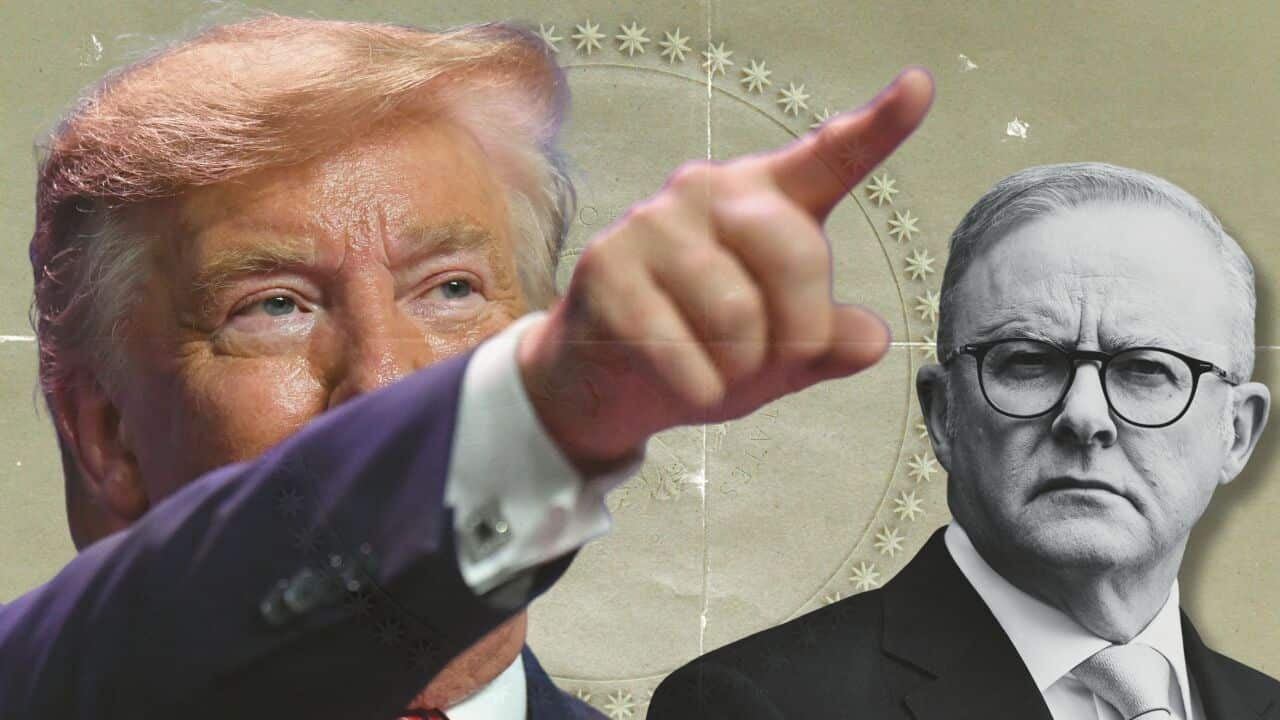A potential verbal spray from Donald Trump towards Anthony Albanese during talks at the White House would not mean the alliance between the US and Australia is damaged, a federal minister says.
The prime minister flew out of Brisbane on Sunday bound for Washington, where he will meet with the US president at the White House on Tuesday morning (AEDT).
While the fate of the AUKUS defence agreement and tariffs will dominate the bilateral talks, Albanese will be hoping to avoid the criticism other world leaders have experienced during their encounters in the Oval Office.
Earlier on Sunday, Education Minister Jason Clare dismissed suggestions a testy meeting with Trump would be a setback to the relationship with the US.
"I doubt that's a problem. I think most Australians understand the importance of the relationship between America and Australia," he told Sky News.
"We've got different views on different things, Medicare, gun laws are good examples of that, but we've got more in common than we have that separates us or divides us.
"It's these sorts of values and those sorts of interests that will drive the conversation and the relationship between President Trump and Prime Minister Albanese."
Albanese would face challenges in dealing with Trump on his home turf, Australian National University political academic John Hart said, alluding to other world leaders who'd faced tense exchanges with the president.
"Trump's behaviour is entirely unpredictable and that is an issue as far as the prime minister is concerned," he told the Australian Associated Press.
A statement from Albanese framed the trip as an opportunity for the two nations to deepen ties, including on trade on investment.
The prime minister will be joined by Resources Minister Madeleine King and Industry and Innovation Minister Tim Ayres for parts of the trip.
A critical minerals deal with the US is likely to be used as leverage to seek lower tariffs on exports.
Clare said any possible critical minerals deal would not mean the relationship with other countries, such as China, would be strained.
"We're in favour of free and fair trade. China is our biggest trading partner. The US is our greatest and most important ally," he said.
"A big part of our responsibility as a mature government is to work with both nations in Australia's interest."
But Hart says the US is unlikely to make an exception for Australia and keep the tariff for everyone else.
"If he did, it would put Australia offside with a lot of other trading partners affected by this because if the tariff was reduced, Australia would be able to sell more steel and aluminium than competitors", he said.
"Australia has got to live with the steel and aluminium tariffs."
The prime minister said he was looking forward to a "positive and constructive" meeting with Trump.
"Australia and the United States have stood shoulder-to-shoulder in every major conflict for over a century," Albanese said.
"Our meeting is an important opportunity to consolidate and strengthen the Australia-United States relationship."
Liberal frontbencher Jonathon Duniam said the Coalition hoped the meeting with Trump would be a success, but the time taken to secure an in-person bilateral was concerning.
"We are nearly a year on since Donald Trump was elected to the office of President of the United States, and we're only just now getting this meeting. It's great it's happening, albeit too late," he told Sky News.
"Some strong agreements that deliver for our community and our economy and national security, I think are must-haves out of this meeting."
For the latest from SBS News, download our app and subscribe to our newsletter.

